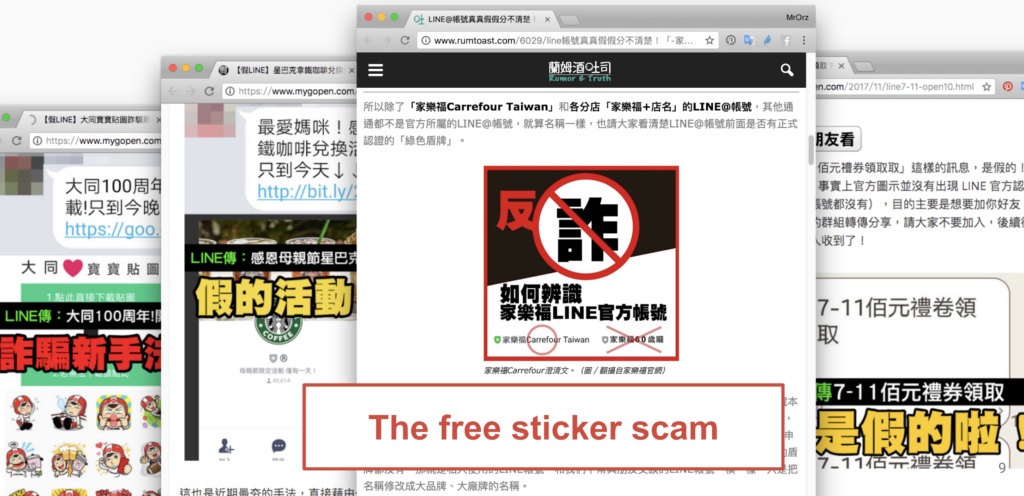
Cofacts
In the face of relentless pressure from China, Taiwan may have figured out how to combat disinformation without undermining free speech, according to Jacob Mchangama, executive director of Justitia, and Jonas Parello-Plesner, executive director of the Alliance of Democracies Foundation and senior fellow at the German Marshall Fund.
The abject failure of Chinese disinformation to seriously affect Taiwan’s presidential election is a promising sign that even small democracies can challenge a huge and tech-savvy dictatorship when it comes to information warfare, they write for The American Interest:
 But this requires empowering governments, civil society, and media platforms through smart and creative tech strategies built on trust, transparency, participation, and inclusiveness. Moreover, the recent election was only the first battle of what will surely be a much longer war. Mainland China is unlikely to take its defeat on the chin and will undoubtedly seek to upgrade its offensive digital capabilities in order to hack and breach Taiwan’s faith in tech-optimism and civic trust. Should it succeed, the Taiwanese public and political establishment may not be willing to continue gambling on radical transparency to ensure election integrity. Read the full article.
But this requires empowering governments, civil society, and media platforms through smart and creative tech strategies built on trust, transparency, participation, and inclusiveness. Moreover, the recent election was only the first battle of what will surely be a much longer war. Mainland China is unlikely to take its defeat on the chin and will undoubtedly seek to upgrade its offensive digital capabilities in order to hack and breach Taiwan’s faith in tech-optimism and civic trust. Should it succeed, the Taiwanese public and political establishment may not be willing to continue gambling on radical transparency to ensure election integrity. Read the full article.
Cooperation with civil society organizations such as g0v (pronounced “gov-zero”) has allowed Digital Minister Audrey Tang’s Anti-Troll Army to collect and analyze reams of data and carefully target its response in order to optimize efficiency and reach, they add. One innovative tool is the collaborative Cofacts initiative (above), which allows users of Line, the most popular messaging app in Taiwan, to install a chat-bot.
Another Taiwanese civil society group, Doublethink Lab, devises strategies to counter threats to democracy, in part by mapping online information operation mechanisms, surveillance technology exports and digital authoritarianism.
The Center for Strategic and International Studies hosts a discussion on “People’s Republic of China (PRC) Interference in Taiwan’s Elections.” 9:15 a.m.: Taiwan Digital Minister Audrey Tang delivers keynote address, followed by panel discussion on “Methods and Impact of PRC Interference in Taiwan’s Elections,” featuring Puma Shen of National Taipei University and Nick Monaco of the Institute for the Future.
9 a.m. February 11, 2020. Venue: CSIS, 1616 Rhode Island Avenue NW, Washington, D.C. RSVP







